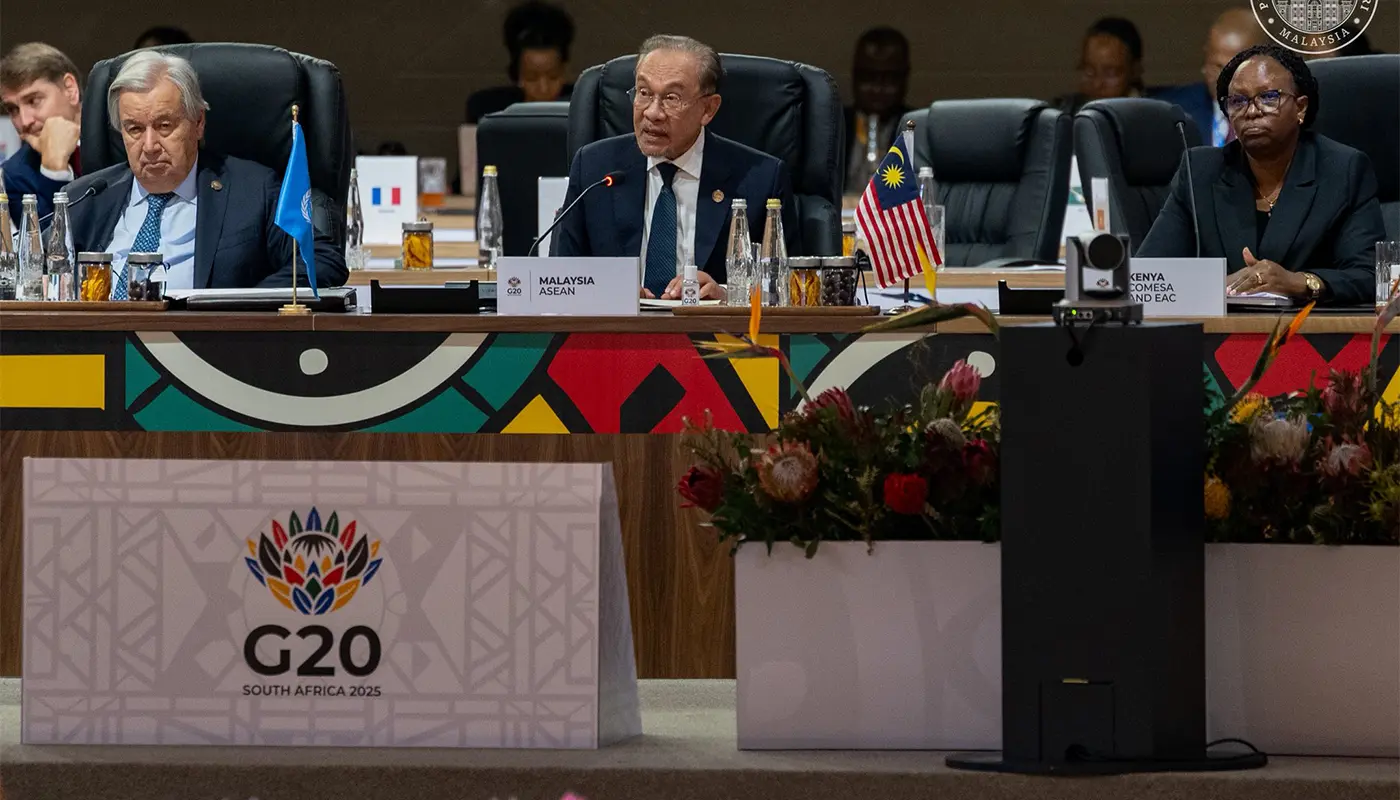Malaysia’s Prime Minister Datuk Seri Anwar Ibrahim used the G20 Leaders’ Summit in Johannesburg to call for a more pragmatic and inclusive approach to tackling climate change, food security, and the global energy transition.
Speaking as ASEAN Chair 2025, Anwar emphasised that resilience must be built through anticipatory investment rather than reactive measures, highlighting Southeast Asia’s experience as one of the world’s disaster epicentres.
Anwar argued that the voices of regions most vulnerable to climate catastrophe must be included in the global agenda.
He pointed to ASEAN’s humanitarian coordination mechanisms and early warning systems as examples of how regional cooperation can strengthen resilience.
“We have learnt that resilience depends on anticipatory investment,” he said, stressing that adaptation must be accelerated where impacts already threaten lives and livelihoods.
The Prime Minister also addressed the pressing challenge of energy demand outpacing the capacity of clean technologies.
He urged honesty and pragmatism in recognising this gap, while reaffirming Malaysia’s commitment to investing in carbon capture, utilisation and storage (CCUS) projects and regional energy networks.
These initiatives, he noted, are designed to ensure that the energy transition is not merely rhetorical but accessible to the widest possible population without imposing undue hardship.
On climate finance, Anwar reiterated that development cannot be meaningful if communities are sidelined. He called for a fairer global financing framework that supports smallholder farmers and does not marginalise developing nations.
His remarks aligned with broader G20 discussions under South Africa’s presidency, which prioritised disaster resilience, debt sustainability for low-income countries, and mobilising finance for a just energy transition.
The Johannesburg summit, the first G20 gathering hosted on African soil, concluded with commitments to empower the Global South and strengthen multilateral cooperation.
Leaders underscored the philosophy of Ubuntu “I am because we are” to highlight interconnectedness and solidarity in addressing global challenges.
Malaysia’s interventions reflected its dual role as a regional leader and a developing nation advocating for equitable solutions.
By pressing for pragmatic technological pathways and inclusive financing, Anwar positioned Malaysia as a voice for resilience, justice, and prosperity that extends beyond elite discourse to the realities of millions across Asia and Africa.







